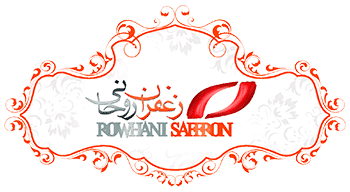Saffron cultivation in line with Alborz water resources management
Droughts and declining levels of underground aquifers and surface water lead to shortcomings in water resources, which is essential for the preservation of these vital resources for future generations.
While human beings need food for life, agricultural production is a major supplier of human food needs to survive, while between 70 and 90 percent of the water supply goes to agriculture.
Regarding climate change and drought, as well as reducing water resources, the Ministry of Jihad-e-Agriculture has introduced a number of policies such as increasing greenhouse cultivation and planting and landing in greenhouses, increasing productivity, managing water resources and planting water on the agenda. Put itself.
Among these plants, which, in addition to high profitability and economical need of dehydration, are red gold, or saffron, which is home to the eastern provinces of the country.
In recent years, the approach of some provinces, especially those with a low water deficit, has been the cultivation of saffron, which is one of the cultivars of medicinal plants, which is also one of the provinces of Alborz.
The head of the Agricultural Jihad Agriculture Organization of the Alborz Province in Iran added that about 160 hectares of agricultural land has gone under cultivation of medicinal plants. Seyed Majid Mousavi added: About 500 tons of medicinal plants have been harvested this year.
He stated that in these lands 38 cultivars of medicinal plant species are cultivated, one of the most valuable of which is saffron, which has been planted in 40 hectares of this land located in Nazarabad city.
He said that this year 121 kg of high quality saffron was harvested, worth about 7,000 260 million rials.
Mousavi expressed hope that the next year the cultivar will increase its cultivar in the city, said the shortage of water resources caused the production of saffron on the agenda because of low water content.
He said that saffron cultivating saffron, due to product prices, high profitability and low water content, is one of the products that will receive more cultivation in the near future, he said.
The head of the Agricultural Jihad Agriculture Organization of the Alborz Province added that medicinal properties, storage and high prices are among the characteristics that farmers have gained in the region to plant this plant.
According to him, the aroma of Nazarabad saffron is beneficial and the tests carried out by the Standards Organization indicate the high quality of saffron produced in the city.
He added that Golmohammadi is another medicinal herb that, while low in water, has a high economic value.
Mousavi said that this medicinal herb is now cultivating 56 hectares of agricultural land in Başiman province, with an economic value of 5,600 tons.
He mentioned the plans and actions of the province to develop the cultivation of medicinal plants, and said: the establishment of the working group on the development of medicinal plant cultivation, the provision of low-interest bank facilities and the payment of subsidies for seedlings and planting of medicinal plants are among these measures.
The head of the Agricultural Jihad Agriculture Organization of the Alborz province added that the holding of training classes on the cultivation of medicinal plants and the issuance of homework licenses and the setting up of small workshops outlined other measures.
Alborz province has 68 thousand hectares of agricultural land, of which 35 thousand hectares are agricultural land.







Get Social